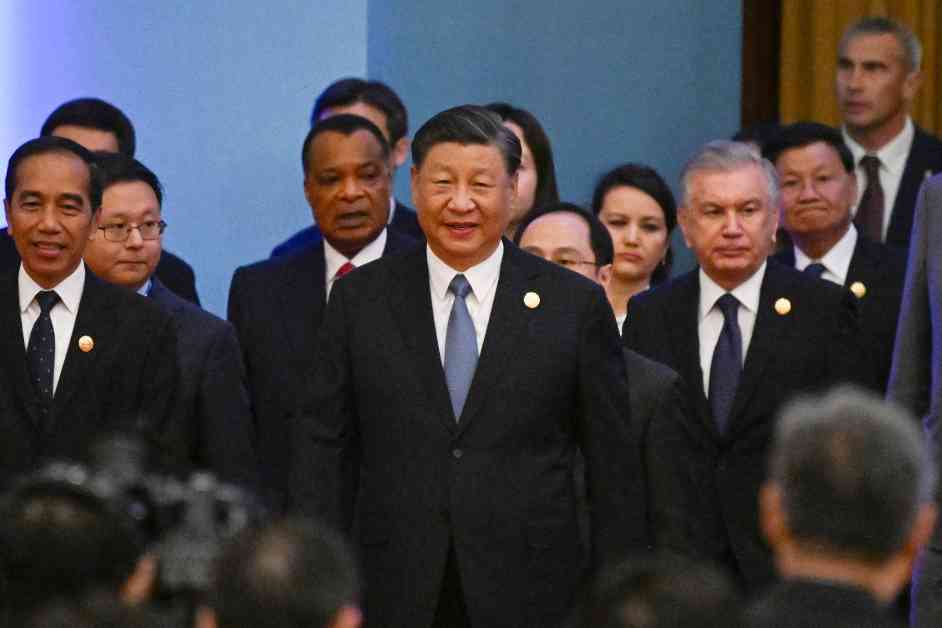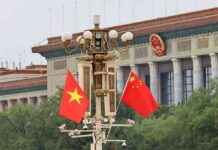China’s Global Leadership Ambitions in the New World Order
In October, Chinese President Xi Jinping delivered a keynote address at the Belt and Road Initiative (BRI) Forum, marking the initiative’s tenth anniversary. The speech highlighted the successes of the BRI and outlined plans for a more sustainable and diplomatic version 2.0. Xi portrayed China as a pioneer in setting standards for the developing world in areas such as artificial intelligence, climate resilience, and modernization.
A white paper released before the Forum provided further insight into China’s vision for global leadership. It emphasized the BRI’s departure from traditional colonial practices, stating that China’s initiatives aim to create “win-win” opportunities without harming other nations. This contrasts with the Party’s view of the U.S.-led global system as one that disadvantages developing countries.
The attendance of leaders from over 20 developing nations at the BRI celebration indicates a growing skepticism towards the current global order led by the U.S. This skepticism presents an opportunity for China to position itself as a leader of the developing world, moving away from its previous stance of “hide and bide” in international relations.
Xi Jinping’s Global Civilization Initiative (GCI) represents China’s latest effort in global development and diplomacy. The GCI, along with other initiatives like the BRI and Global Security and Development Initiatives, showcases China’s ambition to not only implement global governance but also shape the discourse around why it should exist.
The GCI challenges the current global power distribution by criticizing the historical foundations of the current system. China aims to provide alternative solutions to development challenges and promote a new vision of civilization-building. By emphasizing the principle of national self-rule, the GCI advocates for diverse paths towards modernization tailored to each country’s unique circumstances.
China’s approach to global development has evolved over the years, focusing on practical solutions to development bottlenecks. The GCI represents a shift towards broader civilization-building efforts, positioning China as a leader among developing nations. The initiative aims to foster unity among developing countries based on their shared experiences and aspirations for development.
The U.S. and China have contrasting approaches to international development, with the U.S. emphasizing values alignment in its foreign aid programs. China’s aid model, on the other hand, combines aid with trade and investment ventures, promoting mutually beneficial partnerships. This approach challenges traditional models of development assistance and offers a new paradigm for cooperation.
While the BRI has faced some criticism and declining popularity in certain countries, the GDI continues to expand its reach and impact. With projects spanning various sectors such as food production, e-commerce, healthcare, renewable energy, and education, the GDI is demonstrating China’s commitment to sustainable development and innovation.
The GCI represents a shift in China’s global leadership strategy, moving from infrastructure-focused projects to broader civilization-building initiatives. By promoting diversity in governance systems and emphasizing self-determination, the GCI aims to empower developing countries to define their own paths to modernization.
China’s historical engagement with developing countries, from the Bandung Conference to present-day initiatives like the GCI, reflects a consistent commitment to solidarity and cooperation. The GCI’s emphasis on common values such as peace, development, and justice aligns with China’s vision of a multipolar world order based on mutual respect and cooperation.
As China continues to expand its global influence, the GCI serves as a platform for redefining development paradigms and promoting a more inclusive approach to international cooperation. By challenging the dominance of Western values and institutions, China is positioning itself as a viable alternative for developing countries seeking a new path to modernization.
In conclusion, China’s Global Civilization Initiative represents a significant step towards reshaping the global development landscape and promoting a more inclusive and diverse approach to international cooperation. As China asserts its leadership in the developing world, the GCI offers a vision of civilization-building that prioritizes self-determination and mutual respect among nations. As the world navigates the complexities of great power competition, the GCI presents a compelling alternative to traditional models of development assistance, paving the way for a more equitable and sustainable future for all nations.

















